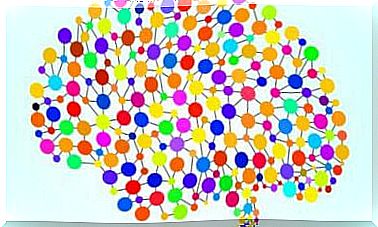Aversion To The Solution: A Widespread Phenomenon

“Climate change does not exist, there are economic interests underneath”. “The poor are poor because they don’t want to work, of course they can’t get up”. “I have no health problems. I can afford a sedentary life and eat anything “. This drastic reasoning defines a mental scheme that takes the name of aversion to the solution.
It has happened to everyone to come across this attitude so radical as to be perplexing, as well as generating a certain desperation. How is it possible for some people to deny the evidence? Even today there are those who, surprisingly, deny the risks of tobacco or some drugs.
It is a phenomenon that has always interested the world of psychology. The deniers who oppose the clear and scientific evidence have always existed and always will exist. In addition, in recent years, this further increases the polarization in the different policy areas.
In 2014, psychologists Troy Campbell and Aaron Kay of the University of Oregon studied this phenomenon and gave it a name.

Aversion to the solution: I don’t like the solution and I deny the problem
An obvious example of this phenomenon is represented by those who deny the effects of climate change. It doesn’t matter that sea levels or temperatures have risen and that weather phenomena are more extreme every year. Desertification or loss of ecosystems is not enough evidence either.
Climate change deniers start from a concrete fact: the solutions we have at our disposal to curb its progress are not liked. Much of these involve less or no consumption of fossil fuels. Ultimately, this means changing the patterns of consumption, production and life.
But if I don’t like the solution, my reaction will always be to question the problem. “Climate change is an alarmist thing”. Not only is a denial position taken, but in many cases an aggressive or devaluing attitude is adopted towards those who defend the evidence.
We see this same attitude in those who have no intention of changing their lifestyle or quitting smoking, even after a heart attack. “You have to die of something!” Is their response. “My father smoked all his life and died at 95”.
When my ideology does not allow me to accept the solutions of others
Troy Campbell and Aaron Kay, psychologists who used the term “solution aversion” six years ago, explain in their research that it is possible to witness two dynamics in the phenomenon of solution aversion.
- There are those who reject the strategy of confrontation because it does not fit their ideology.
- Those who do not accept it because it goes against their needs, tastes or interests.
The first position is the most common and is the one that often attracts our attention in political confrontations. In the US, for example, it is the tradition of the Republican party to oppose certain initiatives, from intervention to curb climate change to regulating the arms market.
Doing so would go against special interests, so it’s easier to deny the problem. The democratic party, on the other hand, often stands as a social and political nucleus that hopes for a change on these aspects.

Solution Aversion: I don’t want to accept the problem
Daniel, 15, has been diagnosed with diabetes but refuses to accept the problem.The idea of having to take insulin or regulate his consumption of sweets makes him feel desperate, and so he opposes it.
Natalia, 69, has just been diagnosed with eye disease and her driver’s license will not be renewed. Deny the problem: He insists that having a disorder in only one eye is not enough reason not to be able to drive.
We could provide many other examples of this behavior and reactions that apply when we don’t like strategies for dealing with a problem. We don’t like them because they change our lifestyle and in the face of this we inevitably feel fear, anger and frustration.
Solution aversion is more common than you think. It is a mechanism that in many cases hinders coexistence, our ability to progress as a society, to see the problem and be able to act in a concerted way.
Behind every vision, there will always be particular interests, but being able to relativize it, from time to time, can allow us to reach those agreements in which we win or lose all together. Let’s keep that in mind.









